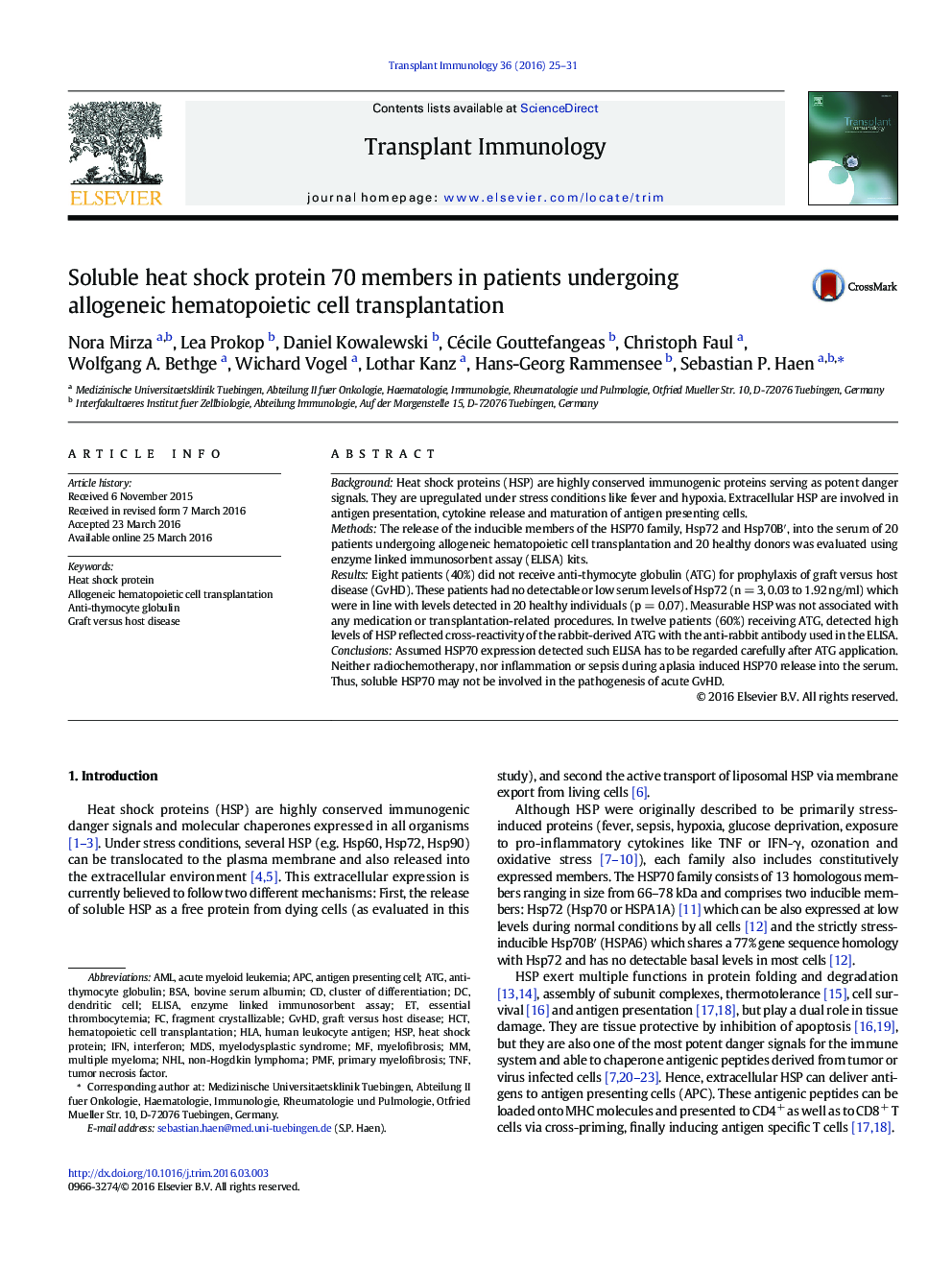| Article ID | Journal | Published Year | Pages | File Type |
|---|---|---|---|---|
| 3391985 | Transplant Immunology | 2016 | 7 Pages |
•Anti-rabbit antibody based methods can detect therapeutic rabbit antibodies in vivo.•Soluble HSP70 is probably not induced during allogeneic hematopoietic cell transplantation.•HSP70 serum levels do not correlate with graft versus host disease.
BackgroundHeat shock proteins (HSP) are highly conserved immunogenic proteins serving as potent danger signals. They are upregulated under stress conditions like fever and hypoxia. Extracellular HSP are involved in antigen presentation, cytokine release and maturation of antigen presenting cells.MethodsThe release of the inducible members of the HSP70 family, Hsp72 and Hsp70B′, into the serum of 20 patients undergoing allogeneic hematopoietic cell transplantation and 20 healthy donors was evaluated using enzyme linked immunosorbent assay (ELISA) kits.ResultsEight patients (40%) did not receive anti-thymocyte globulin (ATG) for prophylaxis of graft versus host disease (GvHD). These patients had no detectable or low serum levels of Hsp72 (n = 3, 0.03 to 1.92 ng/ml) which were in line with levels detected in 20 healthy individuals (p = 0.07). Measurable HSP was not associated with any medication or transplantation-related procedures. In twelve patients (60%) receiving ATG, detected high levels of HSP reflected cross-reactivity of the rabbit-derived ATG with the anti-rabbit antibody used in the ELISA.ConclusionsAssumed HSP70 expression detected such ELISA has to be regarded carefully after ATG application. Neither radiochemotherapy, nor inflammation or sepsis during aplasia induced HSP70 release into the serum. Thus, soluble HSP70 may not be involved in the pathogenesis of acute GvHD.
